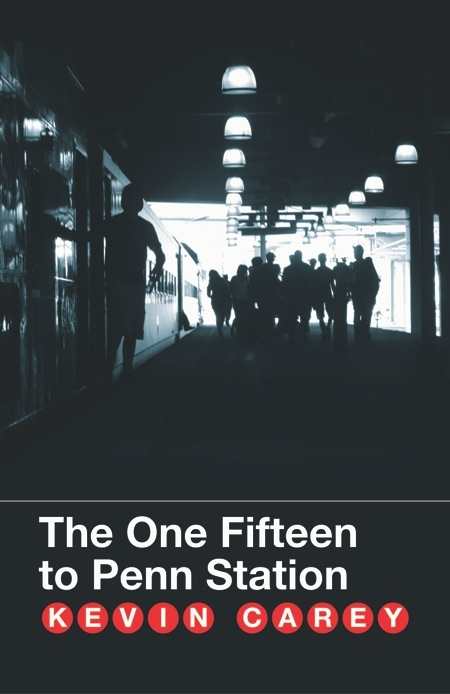It looks like you've stumbled upon a page meant to be read by our code instead of viewed directly. You're probably looking for this page.
The One Fifteen to Penn Station
The words “pretentious” and “poetry” are so often used in conjunction, they might be mistaken for a single compound word. So it’s a joy and a relief to discover Kevin Carey’s The One Fifteen to Penn Station, a collection of poetry that uses language to elevate the everyday thoughts and occurrences of life without surrendering its author’s common-man voice.
The One Fifteen to Penn Station may be part of CavanKerry’s “New Voices” series, but Kevin Carey is no novice. His poetry has been nominated for a Pushcart Prize and Best of the Net 2011, and he is a past winner of the Allen Ginsburg Poetry Award.
Carey’s poetry is refreshing, as it lacks the often forced, cryptic nature of many modern poems. There are no insertions of unusual vocabulary with no purpose but to lend a touch of the exotic; instead, Carey renders his images in plain language that gives the reader the option of two trains of thought—the express: taking words at face value and absorbing Carey’s scenes quickly, waiting till the end, its destination, to pause and consider the deeper meaning; or the local: stopping intermittently to ponder and appreciate lines like these, about looking out a train window, as they happen:
“and it reminds you how easy it is / to walk a mile like a rummy in both directions, / run farther and farther away and closer to yourself, / until the worst bet becomes the only one left / and the trouble follows you like soup cans / tied to a wedding car.”
These verses (from the title poem), and others, sing so perfectly that the reader can almost hear Carey’s Massachusetts accent, subbing broad As for Rs.
There are meditations on death, and at times, it seems that half of the colorful characters Carey grew up with are no longer among the living. But whenever the poems begin to tilt a bit too far toward the morose, Carey offers humorous fare, delivered no less gracefully, like “Mother Told Me” and “Coyote’s Lament”, a glimpse into the mind of a certain Road Runner-chasing canid.
The one disadvantage of utilizing the common tongue is that at times it might seem a bit too common. Readers who like the intricate wordplay and heavy-effort interpretations of the highest-brow poetry might not find much to reward them in a straightforward but heartfelt tribute to time spent at a movie theater (“Movies”). But other readers will look past what first seems simple, and find subtle, sublime pleasure in Carey’s descriptions of him and his teenage son bonding with hardly a word spoken to each other.
The One Fifteen to Penn Station is recommended to readers of poetry, but perhaps more importantly, it is recommended to readers who would usually avoid poetry. For them, The One Fifteen to Penn Station can be a means of transport as magical as that first train ride into New York City.
Reviewed by
Peter Dabbene
Disclosure: This article is not an endorsement, but a review. The publisher of this book provided free copies of the book and paid a small fee to have their book reviewed by a professional reviewer. Foreword Reviews and Clarion Reviews make no guarantee that the publisher will receive a positive review. Foreword Magazine, Inc. is disclosing this in accordance with the Federal Trade Commission’s 16 CFR, Part 255.
